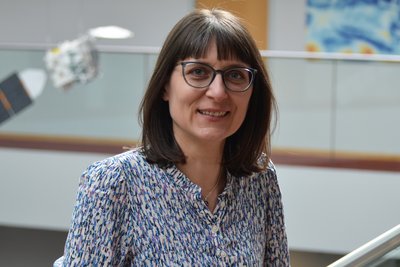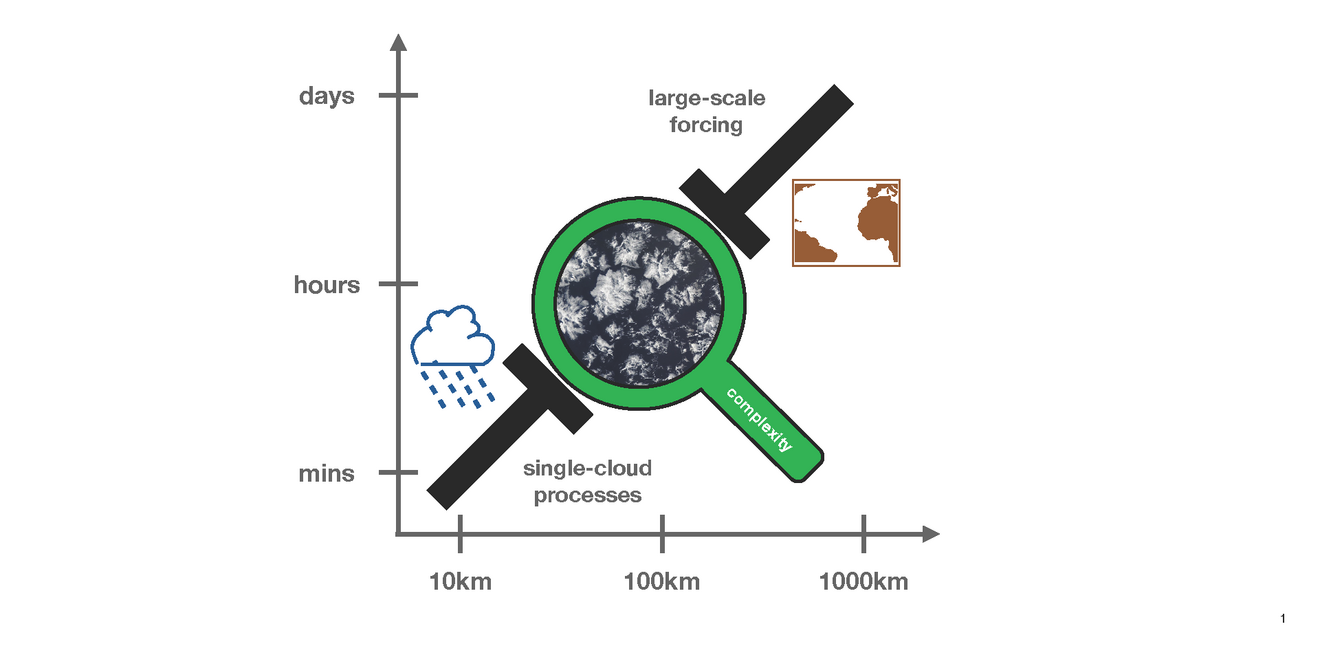Franziska Glassmeier heads new Lise Meitner Research Group at the MPI-M

Clouds are the greatest source of uncertainty in climate projections. This is especially due to phenomena that occur on the scale of entire cloud fields i.e. hundreds of kilometers, that is, on the mesoscale. Here, clouds organize themselves into diverse structures, which can easily be recognized and captured on satellite images. The new independent research group at the Max Planck Institute for Meteorology (MPI-M), "Multiscale Cloud Physics," aims to unlock the secrets of these structures. The group has been permanently established as part of the Lise Meitner Excellence Program of the Max Planck Society and is headed by Franziska Glassmeier, to date Associate Professor at Delft University of Technology (TU Delft). The group also benefits from a Starting Grant of the European Research Council (ERC) for the research project "MesoClou: Unlocking the mesoscale frontier of cloud-climate uncertainty."
Closing the gap in the cloud spectrum
Current climate models do not account for cloud phenomena that unfold on the mesoscale. "The models are based on the assumption that individual clouds and the large-scale circulation, in which they are embedded, can be considered separately," explains the physicist. "But we now know that this is not the case." The assumption has been necessary thus far because, on the one hand, even the most modern computers lack the capacity to model all cloud processes—from cloud formation to the effect they have on climate—in detail. On the other hand, many processes that lead to self-organization on the mesoscale are not sufficiently understood. Such an understanding would be the starting point for indirectly taking mesoscale processes into account.

This is where Glassmeier's research comes in. Rather than mapping cloud formation explicitly from microscopic processes to larger and larger scales, the researcher focuses directly on the self-organization of clouds. "We can see patterns in the cloud fields, and these patterns reduce complexity." Glassmeier analyzes these structures using high-resolution data from geostationary satellites and methods from the theory of complex systems, also building on the research of MPI-M founding director and Nobel Prize winner Klaus Hasselmann. "I see many links to the work at the institute," says Glassmeier.
Glassmeier studied at the University of Göttingen, where she completed her diploma thesis at the MPI for Dynamics and Self-Organization, and received her PhD from ETH Zurich in 2016. Since then, she has held positions at the National Oceanic and Atmospheric Administration (NOAA), Wageningen University, and TU Delft. One doctoral candidate will move with her to the MPI-M, and two others will regularly visit as guest researchers. In the coming months, the team is expected to grow to include four postdocs and four doctoral candidates.
Further information
- Research group „Multiscale Cloud Physics“
- The Lise Meitner Excellence Program of the MPG
- Project MesoClou
Contact
Dr. Franziska Glassmeier
Max Planck Institute for Meteorology
franziska.glassmeier@mpimet.mpg.de
